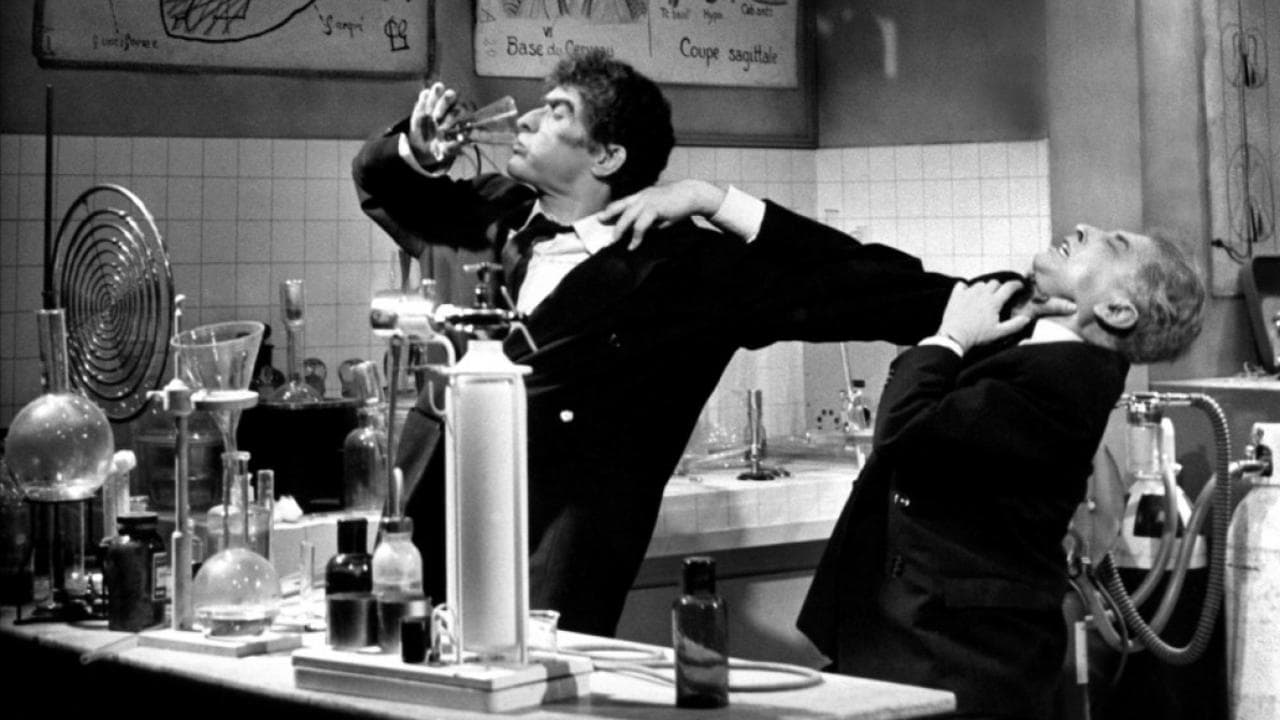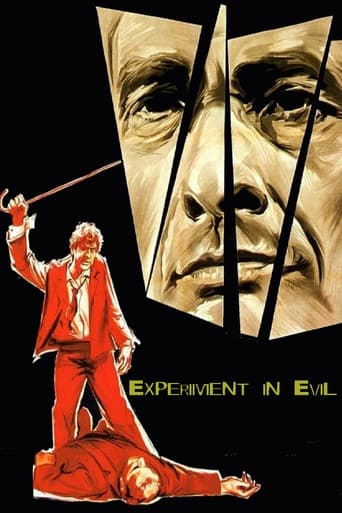Thehibikiew
Not even bad in a good way
Ava-Grace Willis
Story: It's very simple but honestly that is fine.
Calum Hutton
It's a good bad... and worth a popcorn matinée. While it's easy to lament what could have been...
Skyler
Great movie. Not sure what people expected but I found it highly entertaining.
LobotomousMonk
There is a quasi-prologue to introduce Cordelier, which goes a long way to connecting this TV-based production with other self-reflexive films Renoir made late in his career. Space is not explored or constructed in the same was as films like M. Lange or Regle while a lack of mobile framing maintains psychological identification with the characters. There is deep space, but not deep staging as the camera frames long corridors and archways but not groups of characters within the settings. There are situations where groups of townspeople move around together but it is a group held together tenuously and usually motivated by reactions to an event. The women in the building knew of Opale but found no reason to report his odd behavior underscoring that the milieu is very different from that of Lange, Illusion, Fonds or Regle. Some of the performances suffer from affectation which tends to diminish the impact of the Barrault roles. Dr. Cordelier has a moment while reading the newspaper where the audience is privy to an internal monologue - heightening the psychological dimensions of the narrative. There is some splattering of the famous Renoir stylistics when the doctor's party is thrown and later when the collective of workers attempt to stop Opale. Yet, soon after a flashback sequence puts things right back into the realm of the psychological (theatrical) as opposed to the social (realist). The themes of sexual perversion are somewhat muted (or perhaps they require a more 'European eye' to appreciate). The freedom that Cordelier experiences through subscribing to chaos has interesting political implications. In some manner, I feel that Cordelier is one of Renoir's more clearly political films. The narrative frame returns Renoir to the screen and the storyworld diegetic. The compulsion of the nature of humanity (quest of soul will be punished but will be freedom) echoes the true significance of a film like Regle - these films are connected philosophically, if not also thematically. Cordelier is well worth watching for the dynamic combination of Renoir and Barrault using the multiple camera shooting system. There is an even flow to the storytelling that renders the text engaging.
kosmasp
I can see what everyone who enjoyed the movie sees in the film. There are quite a lot of good intentions in this one. Still the execution (I guess because it was made for TV) is not up to other Renoir movies. It also has dated quite badly. On the other hand, I watched the dubbed version, so I can only criticize the voices that were used, but I can also say that the body acting wasn't up to any good.It's a shame that this didn't work for me, as it did for some people here, because I love quite a few Renoir movies and I was looking forward to this one. Yes there is a twist to the story, but I actually don't think it is that big a deal. Just because other movies who have adapted this, haven't gone that route (if you wanna know what this is based on, read the other reviews, many do write about it, I don't want to spoil it, in case you wanna watch the movie).
Boba_Fett1138
This is a rather unusual but successful take on the famous Dr. Jekyll and Mr. Hyde story, written by Robert Louis Stevenson, that was first published in 1886.In this French take on the story the story and settings are changed to the more 'modern' France of the '50's. But don't worry, they didn't changed the main character much, only his name. As a matter of fact Opal is perhaps far more brutal and a bad guy than his predecessors from earlier Dr. Jekyll and Mr. Hyde movies.The movie is more of a thriller and mystery movie than an horror. In that regard "Le Testament du Docteur Cordelier" already works as a surprising and effective movie. It provides the movie with some nice twists (especially obviously when you aren't yet familiar with the story of Jekyll & Hyde) and original moments. Yet the movie never truly manges to captivate the viewer with its story. It's too lacking in suspense for that.Still "Le Testament du Docteur Cordelier" remains a far better than average movie. This is mainly due to its fine visual style which suits the movie well and the professional directing from acclaimed French movie-maker Jean Renoir.Jean-Louis Barrault gives a fine performance as Dr. Cordelier/Opale, although he plays Opale a bit too much like a drunk. It doesn't however makes his performance any less powerful- or believable. Most of the other actors also give a fine performance, although however some of them are really below par.Still all in all "Le Testament du Docteur Cordelier" remains a good and surprising enough movie to satisfy its viewers. Far from the best Dr. Jekyll and Mr. Hyde movie but a more than good and above all, original attempt, from Jean Renoir, nevertheless.7/10http://bobafett1138.blogspot.com/
galensaysyes
This is the only version of "Dr. Jekyll and Mr. Hyde" that enables the viewer to watch the story as if it were new. It's the only one in which the fantastic events proceed from commonplace surroundings: it's set contemporaneously and shot like a documentary program. It's also the only one in which the two characters are believably distinct: one would never guess that the fussy, ascetic Jekyll and the careless, garish Hyde could be the same man. It's the only version that makes clear Jekyll's hypocrisy, which was the point Stevenson was emphasizing and which I never understood before: what Jekyll's friend can't understand--the reason Jekyll blocks the investigation of Hyde's crimes--is not that the criminal has some hold over him, but that he himself is the criminal and is protecting his own good name. Barrault's make-up as Hyde is rudimentary compared to the elaborately gruesome make-ups of the other versions, but what he makes of the character is far more meaningful. This Hyde is comic until he turns violent; he's a cross between Chaplin's tramp, a juvenile delinquent of the 50's, and an aboriginal--figures that can all be seen as embodiments of anarchy. He does exactly as his impulses compel him. Jekyll does the same--but while his patients are anesthetized, so they won't know. This version of "Jekyll", without special effects or filmic style and in modern dress, is the only serious one. I think Stevenson would have respected it.

